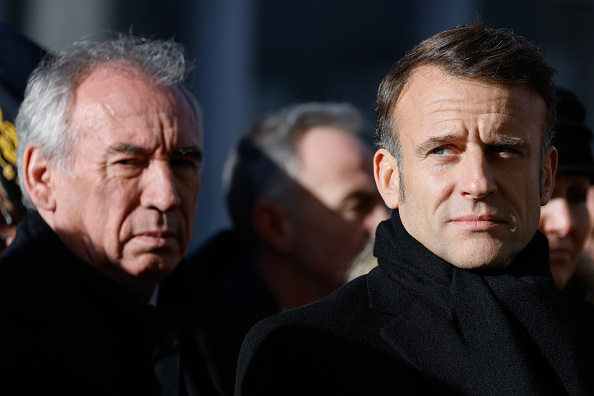And so, this week, Bayrou’s theory about it being hard to censure a government a second time around is being put to the test: he delivered his speech of political intent on the 14 January and deftly avoided making any firm commitments for fear of angering one of the camps in the parliament. Instead, he presented a vision of government that evolved through time, adjusting its actions in line with the compromises it must make. It was impressive in its ability to transform a significant lack of commitment into a noble principle of government. Perhaps this is how the wily politician has survived so long — he was, after all, education secretary when Emmanuel Macron was still a love-struck student.
“The appointment of Valls is a red rag to the socialist bull.”
Reactions to his speech, and to the censure motion put forward by the far-Left La France Insoumise, suggest that Bayrou may be sticking around for a little longer. It seems he has succeeded in undoing the unity on the Left, at least with regards to the censure motion. The Socialist Party decided, in extremis, not to support it, thus in effect splitting the New Popular Front alliance which has been in place since the legislative elections last year. The sticking point for the Socialists was pension reform. Bayrou took a classic middle-way position: he refused to suspend the reform but he did say he would organise a three-month consultation. When pushed, he said he would be inclined to support a new deal for pensions should there be agreement as a result of the consultation. This was just about enough for the socialists.
As well as all the parties of government, including the centre-right Républicains, making it clear they will not support the vote of censure, the far-Right appears is also on side. Jordan Bardella lambasted Bayrou’s speech but the Rassemblement National as a whole has opted to hold its fire. Only days after the death of Jean Marie Le Pen, the party’s co-founder, Marine Le Pen and Bardella are playing a somewhat longer game. Thinking of their electoral prospects over the next two years, neither wishes to be seen as the harbingers of doom nor as needlessly reckless or radical.
In essence then, Bayrou’s calculation may have been correct. Bringing down a government is an exhilarating and dramatic gesture and a month ago it sent a clear message to the president, holed up in the Elysée Palace with a few of his cronies. But bringing down a second government would tell the country, and the world, that France has become ungovernable. There would, too, be serious consequences such as the need to survive without passing a proper budget and to pay increasingly higher interests on the renewal of its debt.
It would be quite wrong, though, to present Bayrou’s survival as some kind of political triumph or success. The cost of his strategy is considerable. As the prime minister tries his hardest to prevent the parliament from censuring him, it is hard to imagine that his government will pursue anything like a coherent plan for France. His legislative outputs will end up being an aggregate of whatever can make it through the parliament unscathed. Peace in the national assembly is no longer the means via which the government can pursue its programme; it has become an end in itself. His is a government that will be defined not by what it does but simply by its capacity to survive.
This is a low bar, particularly given the challenges France is facing, from a faltering economy to the need to determine Europe’s response to the imminent arrival of Trump at the White House. It is unlikely that history will treat the Bayrou government very favourably, even if he does last longer than his predecessor.
